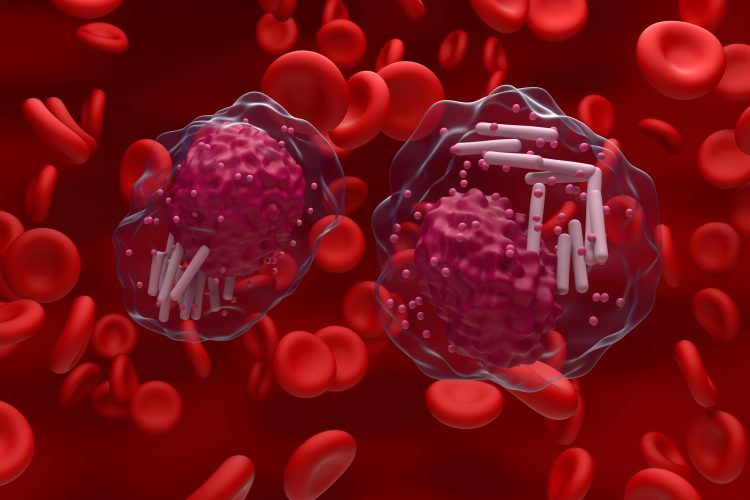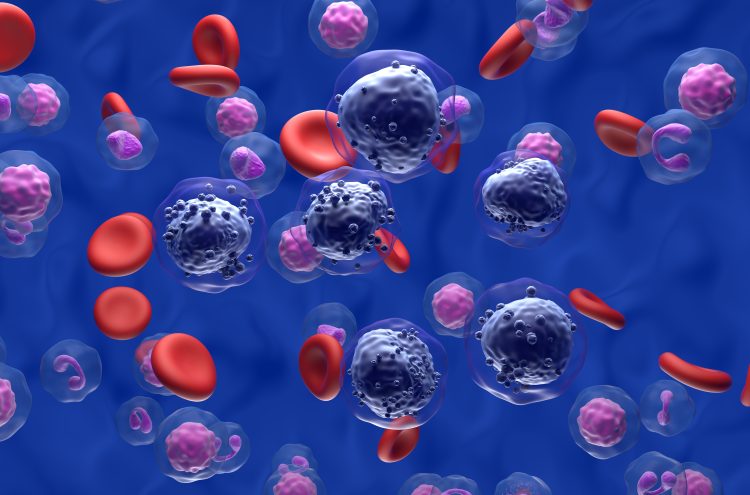Leukaemia cells hit hard by innovative dual-drug approach
Posted: 4 March 2025 | Tony Portelli - Advisory Editor | No comments yet
Scientists have discovered a dual-drug therapy that dramatically increases leukaemia cell death, offering new hope for patients with acute myeloid leukaemia (AML). By combining SRC and MCL-1 inhibitors, this approach opens the door to more effective treatments.


Scientists at the VCU Massey Comprehensive Cancer Centre have revealed a pioneering combination treatment strategy that increases the death of acute myeloid leukaemia (AML) cells. The study, published in Signal Transduction and Targeted Therapy, part of the Nature family of journals, showcases the collaborative action of MCL-1 (myeloid leukaemia cell-1) inhibitors with a kinase inhibitor targeting the Sarcoma (SRC) gene.
A new therapeutic approach
AML is a particularly aggressive cancer, with a median survival of less than nine months and a five-year survival rate of just above 30 percent, according to the National Cancer Institute. While numerous therapies have been developed over the years, the majority of AML cases remain resistant to standard treatments or relapse after therapy, except for a small group of patients eligible for bone marrow transplants.
The novel approach focuses on MCL-1, a protein crucial for the survival of undifferentiated leukaemia stem cells. MCL-1 inhibitors, previously recognised for their potential in treating various blood cancers, have shown promise in preclinical trials by hampering the survival mechanisms of AML cells. However, these inhibitors also inadvertently trigger a build-up of MCL-1 within the cancer cells, reducing their effectiveness.
“Cancer cells are known for their ability to develop alternative protective pathways that allow them to survive exposure to agents that interrupt signalling cascades,” explained Dr Steven Grant, associate director for translational research at Massey. “If one can identify those escape pathways and disable them, there is a much better chance of killing the cells.”


Acute Myeloid Leukaemia (AML) is a fast-growing and aggressive cancer of the bone marrow and blood. It occurs when immature white blood cells (myeloid cells) multiply uncontrollably, crowding out healthy blood cells. This leads to anaemia, infections, and bleeding disorders.
Combining forces: SRC and MCL-1
To overcome the challenge of MCL-1 accumulation, Grant’s team explored the use of SRC gene-targeting kinase inhibitors. These inhibitors disrupt cellular processes that contribute to the unwanted build-up of MCL-1. When combined with MCL-1 inhibitors, the treatment showed a powerful anti-leukaemic effect, selectively killing AML cells while sparing healthy cells.
In mouse models, the combined regimen was well tolerated and significantly improved survival in patient-derived xenograft models, which utilise tumour tissues from real patients. Further analysis indicated additional disruptions in cellular signalling pathways, potentially enhancing the anti-leukaemic impact of the combination treatment.
Clinical potential and future directions
The findings suggest that incorporating SRC inhibitors could significantly enhance the efficacy of MCL-1 antagonists in clinical settings. One of the major hurdles in the administration of MCL-1 inhibitors has been their potential to cause heart complications. However, several pharmaceutical companies are currently developing newer versions of these drugs with minimal cardiac toxicity.
Grant and his collaborators aim to test whether SRC inhibitors can safely boost the anti-leukaemic properties of these next-generation MCL-1 inhibitors. If successful, this could pave the way for clinical trials targeting patients with relapsed or refractory AML, a group for whom effective treatment options remain scarce.
These findings support a clinical approach to make targeted therapy actually work in the majority of deadly cancers.
“This is an important discovery in AML, but it’s a reflection of an approach that Dr Grant has been a pioneer in for many years,” said Dr Gordon D. Ginder, former cancer centre director and a member of the Cancer Biology research programme at Massey. “These findings support a clinical approach to make targeted therapy actually work in the majority of deadly cancers which often have escape mechanisms for survival when their primary driver is targeted. That’s the bottom line.”
With these promising results, the research team hopes their work will lead to new clinical trials and, ultimately, more effective treatments for AML patients worldwide.
Related topics
Clinical Trials, Drug Discovery, Drug Discovery Processes, Immuno-oncology, Immuno-oncology therapeutics, Kinases, Therapeutics
Related conditions
acute myeloid leukaemia, Cancer
Related organisations
VCU Massey Comprehensive Cancer Center
Related people
Dr Gordon D. Ginder, Dr Steven Grant








